A Battle Restored
장르 :
상영시간 : 16분
연출 : Kiki Ho
시놉시스
Following the restoration of the forgotten Surinamese documentary Oema foe Sranan (1978) this film exposes stories of activism and struggle that enabled the production and distribution of this militant documentary.
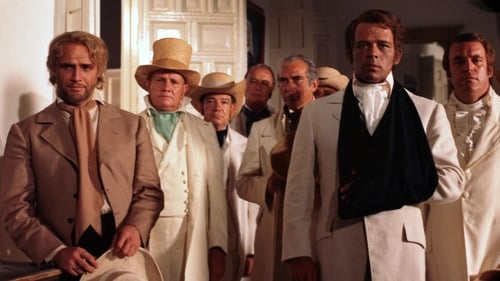
The professional mercenary Sir William Walker instigates a slave revolt on the Caribbean island of Queimada in order to help improve the British sugar trade. Years later he is sent again to deal with the same rebels that he built up because they have seized too much power that now threatens British sugar interests.
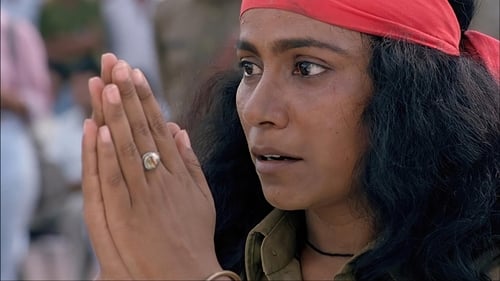
열한살의 어린 나이에 폴란 데비(Phoolan Devi: 시마 비스와스 분)는 가난한 부모에 의해 자전거 한 대와 암소 한 마리의 대가를 받고 맏며느리로 팔려 간다. 그러나 무지한 남편이 아직 어린 그녀를 학대하고, 강간하자 그녀는 다시 집으로 도망오게 된다. 그녀의 아버지는 폴란이 걷게 될 힘든 삶을 예감한다. 그후 폴란은 마을 청년들이 호감을 느낄만큼 아름다운 처녀로 성장하고, 촌장의 아들은 의도적으로 폴란에게 접근하다 실패한다. 자존심이 상한 촌장의 아들은 음모를 꾸며 결국은 그녀를 마을 밖으로 추방한다. 마을 주변을 배회하던 폴란은 또다른 촌장 아들의 음모로 경찰에 잡혀가고, 경찰에게 강간과 학대를 당하게 된다. 경찰에서 풀려난 후 경찰과 결탁된 갱단의 대장에게 잡혀 무리들속에 포함되지만 갱단의 대장은 그녀를 상습적으로 강간하고, 이를 보다 못한 도적 비크람은 대장을 사살하고 무리의 대장으로 올라선다. 폴란을 사랑하는 비크람은 그녀에게 총쏘는 법과 산을 오르는 훈련을 시키고, 폴란은 자신을 인격적으로 대우해주는 비크람에게 사랑의 감정을 느낀다. 인습의 굴레에서 해방돼 갱단의 대장과 함께 무리를 이끌며 행복한 나날을 보내던 폴란, 그러나 그 행복은 경찰에 잡혀갔던 원래의 대장 비스람이 풀려나면서 산산히 부서지게 된다. 마을의 부자들과 경찰과 손잡고 있는 대장 비스람은 비크람을 몰래 총살하고, 그녀를 납치, 폭행, 윤간한 후 발가벗긴 채 온 마을을 끌고 다닌다. 그 후 경찰과 비스람의 손을 피해 인도 북부 마디아 프라데쉬의 광야로 숨어 자신의 갱단을 형성한 폴란은 의적으로 그 이름을 전국적으로 날리게 되는데...

A second generation cameraman in Australia finds evidence that his father had filmed a nuclear test that allowed aboriginies to be exposed to and killed by radiation. He begins a search for a secret that if true, his government has already killed people to keep quiet.

Public health physician Noel Nutels' ideas and the footage he made of Brazilian indigenous peoples between 1940 and 1970 come together to denounce the historic massacre against native communities.
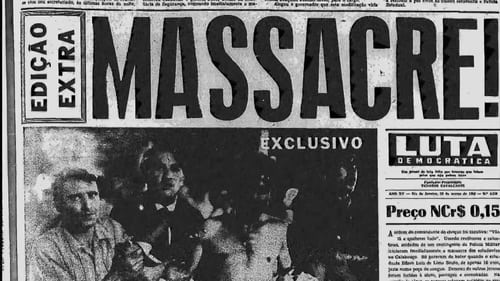
Learn about the trajectory of student leader Marcos Medeiros and learn more about his exile in France and Cuba. In 1968, he joined the counterculture when political activism became an audiovisual expression of intervention in social reality.

Quebec, on the cusp of the 1960s. The province is on the brink of momentous change. Deftly selecting clips from nearly 200 films from the National Film Board of Canada archives, director Luc Bourdon reinterprets the historical record, offering us a new and distinctive perspective on the Quiet Revolution.

“Marilyn vs. Marilyn” tells the story of a little-known period of Marilyn’s life – the years she spent in New York, trying to became a ‘serious”’ actress, taking lessons with Lee Strasberg and setting up a production company with her photographer and trusted friend, Milton Green. Based on hitherto unpublished – and magical - photos from the Greene archives, the film focuses on the photographic image of a woman who remains one of the greatest legends in the history of cinema… and an enduring enigma.

Following the restoration of the forgotten Surinamese documentary Oema foe Sranan (1978) this film exposes stories of activism and struggle that enabled the production and distribution of this militant documentary.
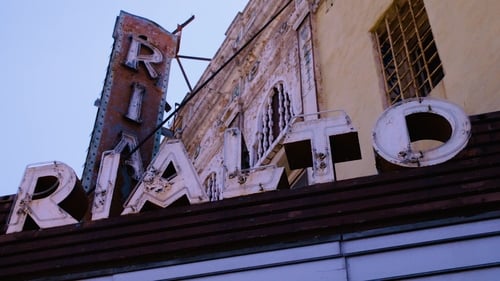
Celebrating the splendor and grandeur of the great cinemas of the United States, built when movies were the acme of entertainment and the stories were larger than life, as were the venues designed to show them. The film also tracks the eventual decline of the palaces, through to today’s current preservation efforts. A tribute to America’s great art form and the great monuments created for audiences to enjoy them in.

'Atlal (Remnants)' is a fictional documentary that follows Bassam, a Palestinian man in his fifties, on a journey between the past and present. An abandoned school, the remains of a beach club, and a dusty cinema hold Bassam's cherished memories from his life in Qatar. Through personal archives and interviews with Bassam and his wife, Laila, we get a deeper look into their stories—slowly revealing the dismaying thoughts behind Bassam's nostalgia.

Josephine has all her life been told that her Peruvian aunt Augusta died in an armed struggle for the rights of the poor. As an adult Josefin decides to find out the truth about the legendary Augusta.

In France’s last presidential election, Marine Le Pen, a right-wing candidate, won over 30 per cent of the vote after an attempt to rebrand a party long associated with her controversial father, Jean-Marie Le Pen. See how three of her supporters faced similar obstacles in changing the narrative.

Corte Seco, Renato Tapajós' first fictional feature, takes place in 1969 and accompanies Rodrigo, a militant active in the fight against oppression and in favor of the removal of the military government. In this fight, everything was possible: invasion of radio studios to transmit a rebellious message; kidnapping of ambassadors promoted by groups, the so-called apparatuses; assault on banks to finance such activities.

At the National Archive of the Moving Images in Portugal, archivists discuss the powerful bond between people and a machine that preserves a very delicate medium.

Introduction to an extensive training program for everyone professionally involved in the process of film conservation and film restoration. The realization of this training program was initiated and coordinated by ECIPAR (Bologna-Italy) and the Cineteca del Comune di Bologna. It was produced in co-operation with eleven European film archives and film laboratories and co-financed by the FILM project - FORCE program of the European Community.

Oema Foe Sranang (1978), translated in Dutch as Vrouwen van Suriname, was a film made in close collaboration with LOSON (Landelijke Organisatie Strijd Organisatie Suriname). This anti-colonial, feminist portrait of the lives of five Surinamese women came about after the recent independence of Suriname in 1975, also shedding a light on the experience of the Surinamese migrants entering the Netherlands and the Dutch hostile attitude towards this large flow of migrants.

Documentary about the lost 1914 film "Sperduti nel buio". Film historian Denis Lotto journeys across Europe following the trail of the lost movie.

Political activist Kader Affak—the unforgettable surveyor of Tariq Teguia’s film Inland—runs a charity on the same premises as Le Sous-Marin literary café that he is renovating. In powerful chiaroscuro, he tells Yanis Kheloufi about the final days of his mother, a constitutive episode that gave birth to his unshakeable faith in the Algerian people.
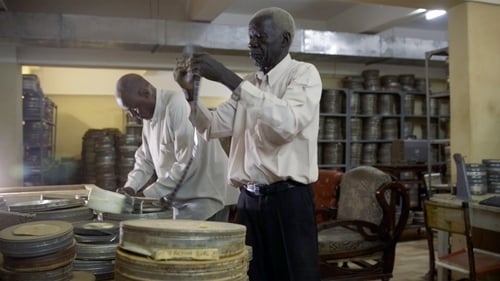
Benjamin and Awad run Sudan's national film archive. The two men, who have worked together for more than 40 years, are devoted to protecting their country's visual memories. Home to some 13,000 films, the archive preserves pivotal moments of Sudan's turbulent history and is one of the largest in Africa. But the archive is in a fragile state. Following years of neglect and poor storage, many film reels are turning to dust in Sudan's unforgiving tropical climate. The two friends are determined to turn it around and embark on a mission to save the old films. Will they succeed in preserving Sudan's visual history for future generations before it's too late?

Documentary about documentary filmmaker Stig Wesslén.














